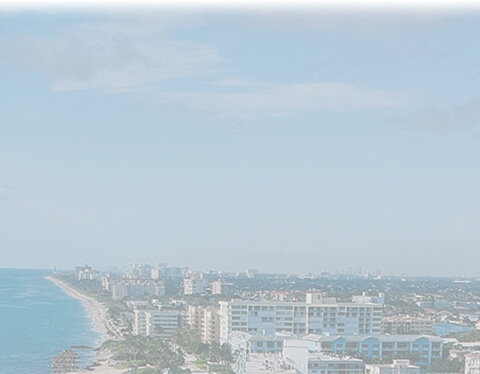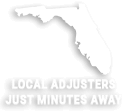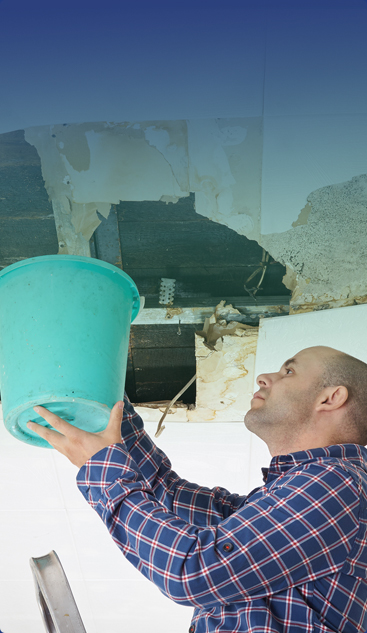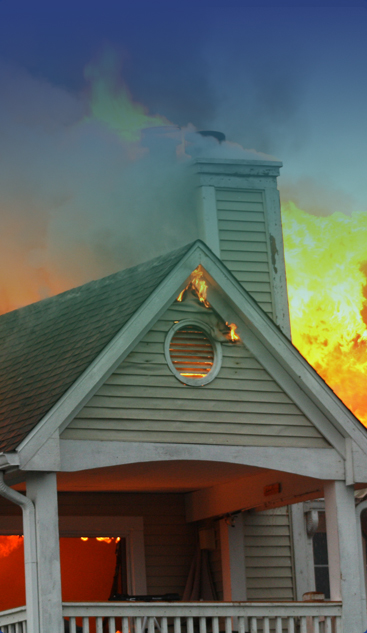What Type of Damage Does a Flood Cause?
Flood waters can cause inestimable damage and loss. According to FEMA, even one inch of flood water can cause up to $25,000 worth of damage. While those living close to bodies of water might be at more risk, flooding can occur anywhere due to heavy rains, subpar drainage, or even construction work nearby.
Whether you are dealing with a flash flood or coastal flood, flood waters can cause damage to property by direct contact with water and debris. It also may have indirect effects, harming roads, causing power outages, creating mold, and cutting off access to assistance and supplies.
If your property has been affected by flood damage, Pinnacle Claim Services is always available to help. We assess damage to your property, so you can receive what you deserve from an insurance settlement. Get your life back in order as soon as possible with the help of Pinnacle. Schedule a free initial consultation, including a free damage inspection and policy review, when you contact us online or call (954) 466-2954.
Florida Is at Major Risk of Flooding Year-Round
Florida is the second-most flood-prone state in the U.S., only behind Louisiana in its vulnerability to storm surges and heavy rains. FEMA designates Special Flood Hazard Areas (SFHAs) based on the assessment of flood risk for the given area. Over 40% of Florida’s lands lie within SFHAs.
Several unique factors contribute to Florida’s flood vulnerability.
Location in “Hurricane Alley”
Foremost, Florida is a peninsula surrounded by two large bodies of water, each with its own weather system and climate. Hurricanes frequently form off the coast of the Atlantic and make landfall on Florida’s eastern shoreline. That, or they travel up through the Gulf of Mexico to affect the Tampa Bay area or the panhandle. These same climate conditions can also give rise to major thunderstorms and storm surges.
Low Elevation
All of this severe weather activity would be bad enough on its own, but Florida also happens to be an incredibly low-lying state. The average elevation for Florida is just 100 ft above sea level. Many high-population areas, including Miami-Dade and the Treasure Coast, sit right at or close to sea level. Severe rains can quickly overrun stormwater systems and cause pooling on roads and in neighborhoods.
Vulnerability to Storm Surges
Making matters worse, storm surges are common during severe weather events in Florida. A storm surge occurs when severe weather causes the tidal activity to rise greatly, often several feet at a time just off the coast. These high tides bring with them sudden inland floods, called storm surges. Areas that normally have a high tide two feet above the average tide activity can generate a storm surge 15 feet or higher, often miles into coastal communities.
Floods Are Damaging and Deadly
Make no mistake: flood waters pose extreme risks to everyone around them. They can drown people, topple buildings, and easily carry away a fully loaded vehicle. Consider that a cubic yard of water weighs 1,700 pounds, on average. The amount of pressure exerted is astonishing. When a waterway spills over its banks or a storm surge spills into a residential area, the potential for damage is catastrophic.
Below are some of the most common types of damage wrought during a flooding event.
Death or Serious Injury
According to the National Weather Service, more deaths occur each year due to flooding than any other inclement weather hazard. Over 50% of these deaths occur from a car being driven into flood water, followed by people walking in or near flood water.
Therefore, to prevent bodily harm in the event of a flood, get to higher ground immediately and call 911. Roads may have been damaged, and sharp debris or dangerous chemicals may be hiding underwater. It is extremely important not to walk or drive in flood water. Just a few inches can be enough to carry away a passenger vehicle or cause it to stall.
Because flooding is so dangerous, be sure to obey any evacuation orders for your area. If you have time, it can save your home a great deal of damage by unplugging any appliances and utilities and locking up when you leave.
Property Damage
Flooding can have direct losses, such as damage to humans, property, and other objects caused by direct contact with flood water. It can also cause indirect losses, including disruptions to traffic, trade, or public services.
In your home, flooding can cause a plethora of problems. It can cause any of the following property damage:
- Structural damage
- Landslides
- Road or bridge destruction
- Electrical damage and fire risks
- Disease and mold from standing water
- Debris
- Contaminated drinking water
- Dysfunctional sewage systems
- Destroyed communication lines
The majority of these incidents are caused by direct exposure to water.
Structural and Electrical Damage
Floods could cause cracks in the foundation and buckling floors. Flood water carries debris, such as tree trunks or limbs, as well as debris from other homes. This debris can push up against your home and cause damage to wood studs, walls, and floor joists. It can also cause damage to rafters and trusses, potentially making the roof sag or collapse.
If your house appears to lean or tilt, contact a specialist as soon as possible.
Contact with water may also compromise a home’s electrical system. Be sure to turn the home’s electricity off before entering after any situation with flood water. Flooding may cause broken or frayed electrical wires, which can lead to fatal electrocution if any wires, outlets, switches, or electrical boxes touch water.
Appliance Damage
Appliances in your home may also be subjected to major flood damage. This damage could affect heating, refrigeration, water heaters, and HVAC systems.
If you find that appliances are wet or compromised after a flood, immediately turn off your home’s electricity. Do not use electrical devices until they have been checked by a professional to ensure safe and proper functioning.
Lack of refrigeration may cause food to go bad, so if you need to cut off the electricity or if a flood has caused a power outage, it is important to discard food items that are moldy or have a bad smell.
Mold and Mildew
Mold and mildew can start to grow on a damp surface within 24 to 48 hours. Mold spores can travel through the air, through your home’s air systems, and spread to the entire house. These spores destroy the material they grow on and spread quickly. Mold growth can be extremely detrimental to the structure and safety of your home, and it can also cause mild to severe health issues.
When inspecting your home after a flood, keep an eye out for black or green mold growing on surfaces. It may also be growing in places that are difficult to see and may worsen over time. Therefore, it is beneficial to have your home thoroughly inspected if your home has incurred any water damage. Being proactive when dealing with mold will have the best results, as it can be challenging and expensive to remove once it has spread extensively. Call our team of Florida Mold Damage Claims Adjusters now.
Septic and Well Water Systems Damage
Water systems, such as septic tank filters or well water systems, can become blocked with debris after a flood. According to the Environmental Protection Agency, flood water can transport sediment that intrudes into well systems and contaminates potable water. Contamination can include sediment as well as parasites, bacteria, and other microorganisms that could lead to severe sickness.
It is important to have your well water system inspected as soon as possible after a flood and before drinking, bathing, or washing with any of its waters.
Does My Insurance Cover Flood Damages?
Basic homeowners insurance lacks coverage for flood damage. Generally, it can provide benefits for the repairs of any water damage caused by roof leaks, wall damage, and other types of intrusion. However, any damages resulting from pooling waters, including water entering the home from street level or a designated flood event, will not be covered. The common rule is stated as “waters that touch the ground aren’t covered,” but there are nuances and exceptions to this rule.
Flood damages must typically be covered by a policy backed by the FEMA National Flood Insurance Program (NFIP). These policies are available anywhere that has been designated as a flood risk.
Any uncovered losses would need to be paid out of your own pocket. The risk of this happening is why it is critical to work with an experienced public adjuster who can help you review your policy and pursue all available benefits.
Contact a Reliable Pinnacle Public Adjuster in Florida
If your property is damaged by flood waters, Pinnacle public adjusters help you get the compensation you deserve. Our public adjusters in Deerfield Beach, Naples, Palm Beach Gardens, and throughout Florida work for you, not the insurance company. They can help you assess the damage, interpret your policy and file a claim.
Our public adjusters have created long-standing relationships with experienced technicians to help you get any repairs you may need as soon as possible. These trusted technicians can provide essential services such as cleaning and disinfecting affected areas, removing debris, water extraction, deodorizing the property, drying your structure, replacing damaged siding or flashing, and more.
For a free consultation and review, contact us at (954) 466-2954 or fill out our contact form to speak to a Florida public adjuster. We are always available to help you understand your options and get the money you deserve.












